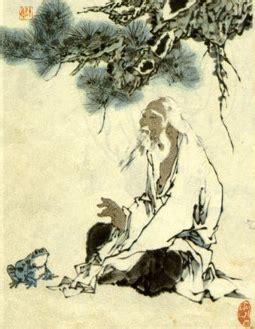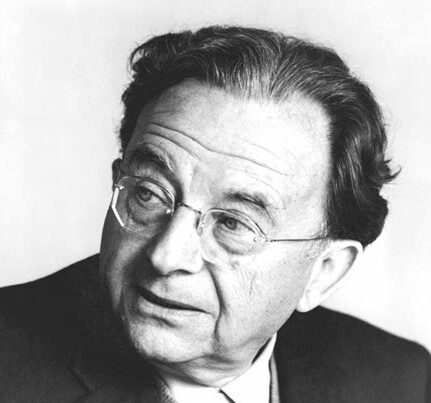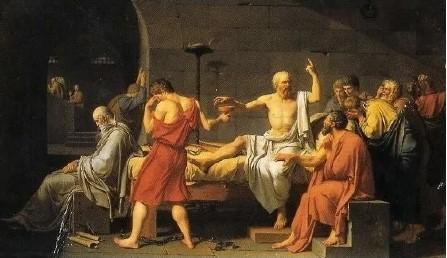Zhuangzi was a Chinese philosopher who lived in the 4th century BCE. His philosophy is often described as Daoist, but it is distinct from other schools of Daoism. The Dao is the ultimate reality, the source of all things. It is often described as being like water, which is fluid, yielding, and yet powerful. The individual is seen as being part of the Dao, and as having the potential to achieve harmony with the Dao.
Zhuangzi’s philosophy is characterized by its emphasis on the natural world, its rejection of conventional thinking, and its focus on individual freedom. One of the central concepts in Zhuangzi’s philosophy is the idea of wuwei, translated as “non-action” or “effortless action.” Wuwei is not about doing nothing. It is about acting in accordance with the Dao, without forcing or striving – being spontaneous and effortless, and following the natural flow of things.
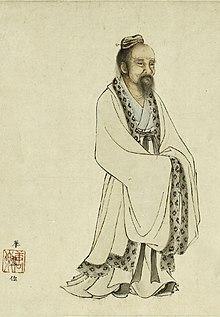
Wuwei involves spontaneous and intuitive action that is free from attachment, striving, or excessive planning. It is about aligning oneself with the natural rhythms of life and allowing things to unfold naturally. By practicing wuwei, individuals can achieve greater efficiency, peace, and harmony in their actions. They can embrace the power of “doing by not doing” and find balance in the midst of life’s complexities.
The Zhuangzi, a seminal text of Daoism, contains a wealth of ideas and concepts such as wuwei central to Daoist philosophy. Comprised of 33 chapters, this text is named after its author and is renowned for its fascinating stories, fables, puns and anecdotes and such that convey the philosophy of Zhuangzi. While there is ongoing debate over authorship, it is widely accepted that Zhuangzi himself wrote the first seven inner chapters. The remaining chapters are believed to have been contributed by multiple authors.
The Zhuangzi serves as a treasure trove of wisdom and inspiration, offering profound insights into the essence of existence and the teachings of Daoism. In contrast to Confucian texts that emphasize hierarchy, elitism, and ceremonial displays, the Zhuangzi celebrates ordinary individuals who possess extraordinary character and attain dazzling excellence.
These characters include Cook Ding, Wheelwright Pian, Wang Tai, who despite having his foot cut off for a criminal offense, commands as much following as Confucius, and ugly Ai Tai Tuo, endowed with a gift of effortlessly leading and garnering admiration and acceptance from all who encounter him.
Through these characters, Zhuangzi skillfully challenges the Confucian ideals by demonstrating that greatness can be attained irrespective of social status or appearance. These individuals embody the Daoist principle of wuwei, embracing effortless action by harmonizing with the Dao, and forging their unique paths to achieve dazzling excellence.
Zhuangzi consistently challenges our anthropocentrism and perspectives, inviting us to question the nature of our perceptions and the limits of our knowledge through an array of captivating stories. These narratives seamlessly blend the fantastic and the real, blurring the lines between the sensible and the senseless.
They introduce us to extraordinary creatures and phenomena, often of sizes and proportions beyond human comprehension. These thought-provoking tales are eloquently presented in the seven inner chapters, leaving us in awe and encouraging a deeper contemplation of the mysteries that lie beyond our conventional understanding.
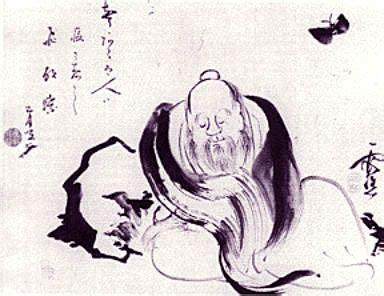
Edit the following text; “In the first Chapter of Zhuangzi, titled Free and Easy wandering, we encounter an awe-inspiring fish named Kun, whose immense size spans countless miles, evading precise measurement. Transformed into the majestic bird known as the Peng, its vast wings stretch across the sky like billowing clouds, their expanse equally immeasurable. Every beat of its wings sets in motion a cascade of effects, stirring waves that persist for months, dispersing creatures and dust far and wide.”
In the opening chapter of Zhuangzi, titled “Free and Easy Wandering,” we are introduced to an awe-inspiring fish named Kun, whose immense size spans countless miles, eluding precise measurement. This remarkable fish undergoes a transformation into the majestic bird known as the Peng, its vast wings stretching across the sky like billowing clouds, their expanse beyond measure.
With each beat of its wings, a cascade of effects ensues, stirring waves that persist for months, dispersing creatures and dust far and wide. This captivating tale sets the stage for the exploration of profound philosophical themes and the wondrous mysteries of existence within Zhuangzi’s masterpiece.
The Peng expended tremendous effort, soaring to great heights to find the air currents that could bear its colossal weight and carry it southward. Observing this, the dove and cicada found great amusement, laughing and jesting at the seemingly excessive troubles undertaken for a mere short flight to the south – tasks they themselves could effortlessly accomplish.
“When we take off with all our might, we may reach the limb of an elm or a fang tree, or sometimes fall short and land back on the ground. What is the point of soaring up ninety thousand li to fly south?” Thus, the position of the Peng remained incomprehensible to the little birds, who were unable to grasp perspectives different from their own.
Edit the following text: “One of the most commonly circulated stories narrated in Zhuangzi is that of the butterfly dream: Zhou dreamt he was a butterfly, flitting, fluttering around, happy with himself, doing as he pleased, he didn’t know he was Zhou. Suddenly, there he was suddenly solid unmistakable Zhou. But he didn’t know if he was Zhou who had dreamt he was a butterfly, or a butterfly dreaming he was Zhou.”
One of the most commonly circulated stories in Zhuangzi is that of the butterfly dream. “Zhuang Zhou dreamt he was a butterfly, flitting and fluttering around, happy with himself, doing as he pleased. In that dream state, he was unaware of being Zhou. Then suddenly, he awoke, unmistakably Zhou. But he couldn’t discern if he was Zhou who had dreamt he was a butterfly, or a butterfly now dreaming he was Zhou.” This perplexing tale challenges our perceptions of reality and the boundaries of self-awareness.
While not as widely known as the butterfly dream, and not found in the Inner Chapters of the Zhuangzi, the stories of the death of Zhuangzi’s wife and the happiness of fish offer profound insights into the cycles of change, the transient nature of existence, the transformations involved in life and death, and the limits of human knowledge.
These captivating narratives sparked an intriguing dialogue between Zhuangzi and his friend Huizi, exploring these themes and other fascinating ideas. However, due to time limitations, I will not cover these stories now. They will be included in later edits. In the meantime, I encourage those intrigued by these tales to explore them further.
In any case, Zhuangzi’s philosophy bears profound implications for contemporary life. In a world often driven by technological advancements and intricate systems, his teachings serve as a timely reminder to embrace simplicity and maintain a balanced perspective. By embracing diverse viewpoints, questioning assumptions, and finding contentment in simplicity, individuals can skillfully navigate the complexities of modern existence while preserving their inner peace and harmony.
Moreover, Zhuangzi’s emphasis on the interconnectedness of all beings and the acceptance of change offers valuable guidance to those seeking fulfillment and a deeper connection with themselves and the world around them. His recognition of paradox encourages us to find harmony amidst opposing forces, enabling us to navigate life’s challenges with grace and resilience. Furthermore, his emphasis on personal transformation invites us to question societal norms, embrace authenticity, and cultivate a deeper sense of purpose and meaning in our lives.
In general, Zhuangzi’s philosophy, with its exploration of perspectives, paradoxes, and personal transformation, offers profound insights into the nature of existence and our place within it. By embracing diverse viewpoints, transcending dualistic thinking, and embarking on a transformative journey, we can expand our consciousness, connect with the boundless energy of the universe, and find harmony amidst the complexities of life.
Zhuangzi’s teachings continue to inspire individuals to seek self-discovery, question assumptions, and cultivate a deep sense of interconnectedness. As we apply his wisdom to our lives, we embark on a transformative path towards greater understanding, compassion, and fulfillment.
I have relied on the translation of the Inner Chapters by Robert Eno and the Complete Works of Zhuangzi translated by Burton Watson as references.

